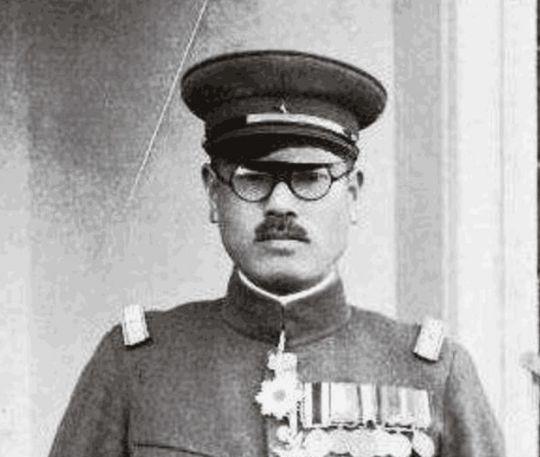The War of Resistance Against Japanese Aggression was a war of the whole nation. Why we were not defeated by the well-equipped Japanese army, the following story tells us that in the face of aggression, it is a war for the whole people. A group of bandits defended their homeland, with less than 20,000 people, and even eliminated more than 20,000 Japanese troops, so that the Japanese army wanted to stop the war.

In early May 1944, as part of the Battle of Yuxianggui, the Japanese army began to attack the ancient capital luoyang. This battle officially broke out from the japanese attack on The Dragon Gate. As the commander of the North China Front, Okamura Ningji attempted to complete his efforts in one battle and organize a large number of troops in central China to attack the Henan region. This time, Okamura Ninji was bloody, and also mobilized all the troops of the Twelfth Army to participate in the battle. More than 50,000 Japanese troops came to Luoyang in a mighty way.
In the face of the murderous army of the Japanese army, the troops guarding Luoyang were not very abundant. Due to the rapid progress of the Japanese army, only three divisions with a total strength of 18,000 men were guarding Luoyang. That is, the 64th and 65th Divisions of the 15th Army of the Chinese Defenders, and the 94th Division of the 14th Army of the Sichuan Army. Such a force was really thin in front of the Japanese army. Although it was already 1944, the Japanese army was still in an absolute superiority in combat effectiveness over the Chinese army. Moreover, these two units are really the third-rate level of the Chinese army.
Needless to say, although the anti-Japanese spirit is commendable, the equipment is indeed very poor. And this fifteenth army is even more interesting, his predecessor turned out to be a group of bandits, with a nickname called "Zhen Song Army". The main members of this Zhensong army were bandits in western Henan. At first, the Zhensong army defected to Feng Yuxiang, and later after the Battle of the Central Plains, the Zhensong army in the wall head grass surrendered to Chiang Kai-shek. Since then, it has been reorganized, and at the time of the Battle of Yuxianggui, this fifteenth army was reorganized and expanded by the Zhensong Army. In ordinary times, these people have no ideals, they are all people who mix their lives. However, at present, the country is in trouble, and the land, whether it is north or south, must jointly resist Japan.
These bandits are all Western Henan, and defending Luoyang is defending their hometown. Although the weapons are not good, the combat effectiveness is not good, but it is still necessary to fight with the Japanese army to the end. On May 9, 1944, with the loss of positions on the outskirts of Luoyang, the most tragic part of the luoyang defense war arrived. At Shijiatun, China and Japan fought to the death. Due to the scarcity of ammunition in the XV Corps, after the grenades ran out, they began to fight with the Japanese bayonets. From the 17th to the 19th alone, the entire position was fought back and forth five times. In addition to Shi jiatun, the battle in the Shangqing Palace was also very fierce. Han Kun, the company commander of the Fifteenth Army, captured a Japanese officer, which led to a large number of Japanese sieges. After the battle was exhausted and the ammunition was exhausted, Han Kunsheng killed the Japanese officer and tied eight grenades to the death with the Japanese army.
When the battle entered a white-hot situation, the Japanese army did not want to increase casualties in vain, so it airdropped a surrender letter hoping to peacefully solve the Luoyang problem. But to the surprise of the Japanese army, such a bandit army with grass on the wall refused the "good intentions" of the Japanese army. Okamura sighed, "It seems that we will never be able to conquer China." On May 23, the Japanese mobilized more than 30 aircraft and more than 100 artillery pieces, as well as more than 400 tanks to cooperate with more than 30,000 Japanese troops to launch a general attack on Luoyang. The walls of Luoyang were collapsed, and the Fifteenth Army began to engage in street battles with the Japanese. On this day alone, the Japanese suffered 8,000 casualties. By the 24th, the fifteenth army ran out of ammunition, and there was no hope of defending the city, so it had to disperse and break through. In this battle, only 2,000 men of the 15th Army survived, but more than 20,000 Japanese troops were annihilated.